Lesson 9 | Digging Deeper into Nonverbal Phrases
Prepositional Phrases
A prepositional phrase is a phrase that begins with a preposition. This is perhaps the most common type of phrase, and as a result, it has the most relationship possibilities. We have already learned that conjunctions connect units of thought together. Prepositions, on the other hand, are coupled with nouns (or things acting like nouns) to provide more information to something in the clause.
All the prepositional phrases in the following passage of Scripture, John 11:1-4, are marked in bold.
Now a certain man was ill, Lazarus of Bethany, the village of Mary and her sister Martha. It was Mary who anointed the Lord with ointment and wiped his feet with her hair, whose brother Lazarus was ill. So the sisters sent to him, saying, ‘Lord, he whom you love is ill.’ But when Jesus heard it he said, ‘This illness does not lead to death. It is for the glory of God, so that the Son of God may be glorified through it.’
Notice that a preposition is always followed by an object, but that the object contains no verb. Prepositional phrases are always subordinate to an anchor phrase.
On the Phrasing Relationships cheat sheet, there are 18 major relationships that a prepositional phrase can have with its anchor phrase, marked with the symbol “Pr.” Let’s briefly explore each relationship below, with scriptural examples to aid your understanding.
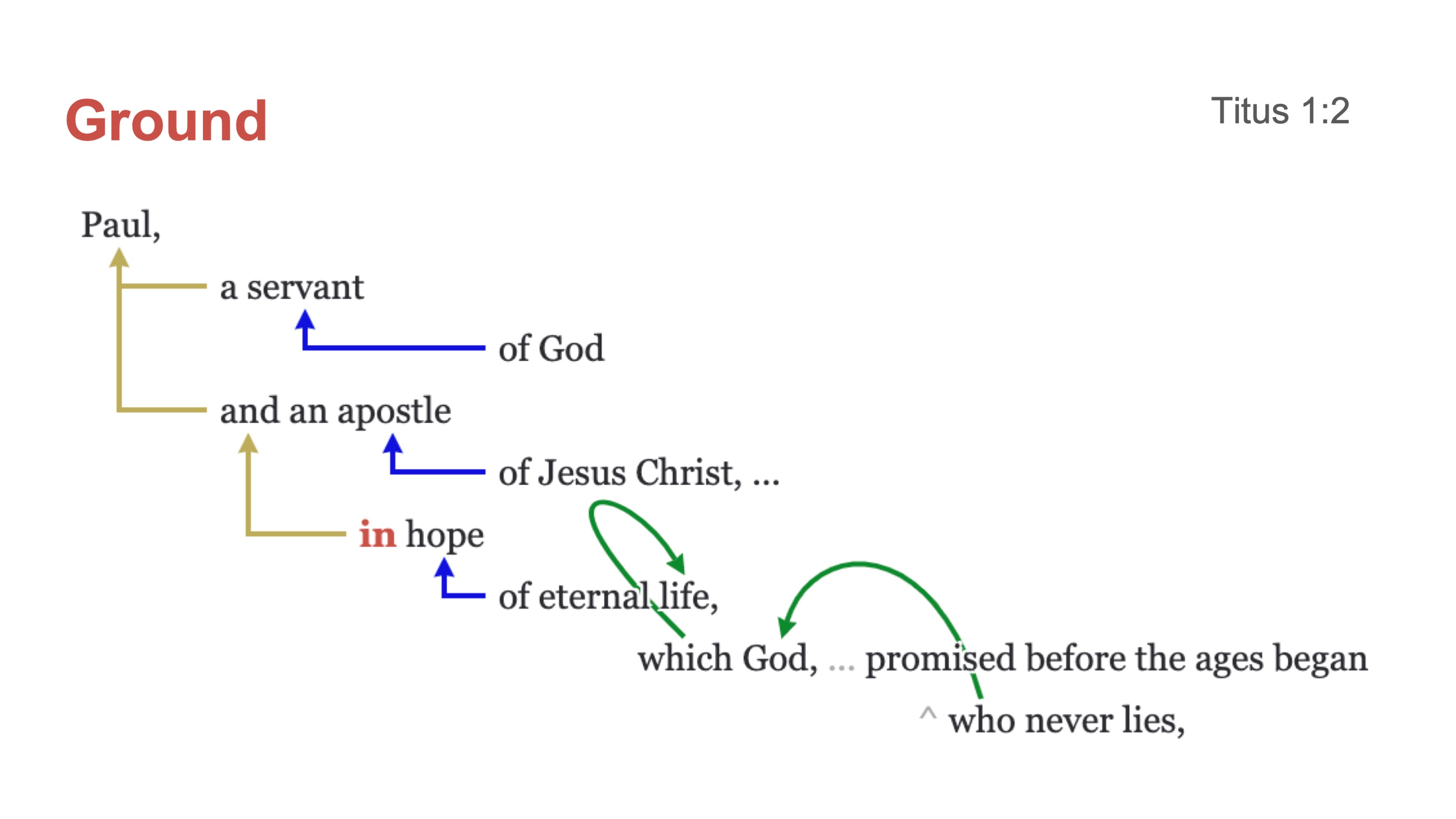
Paul is God’s servant and Jesus’ apostle because of the hope of eternal life promised by God.
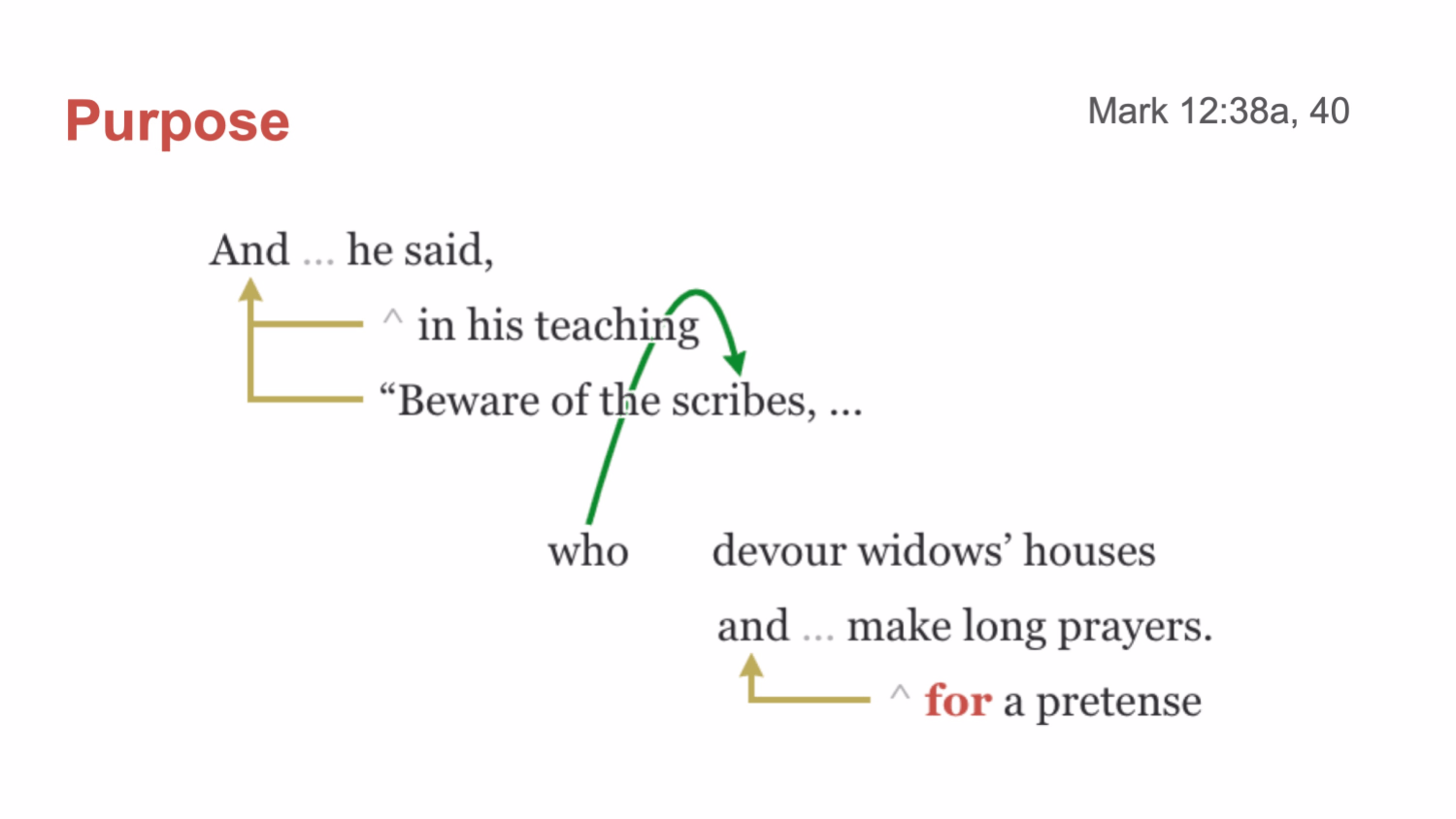
The reason the Pharisees made long prayers was for the purpose of deceiving people.
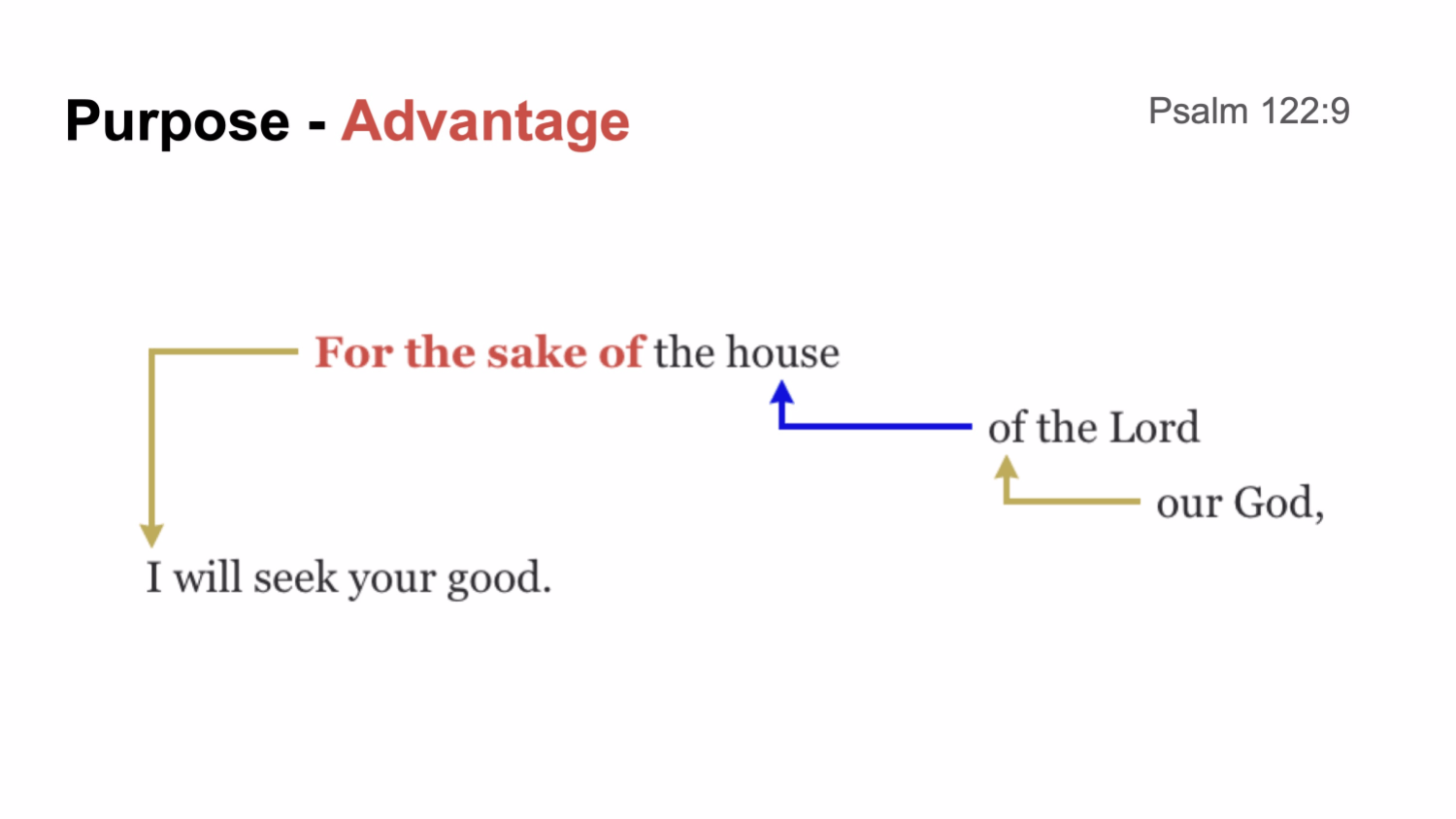
David sought the good of Jerusalem for the benefit of God’s house within Jerusalem. Notice in this example that the highlighted preposition beginning its phrase is composed of multiple words.
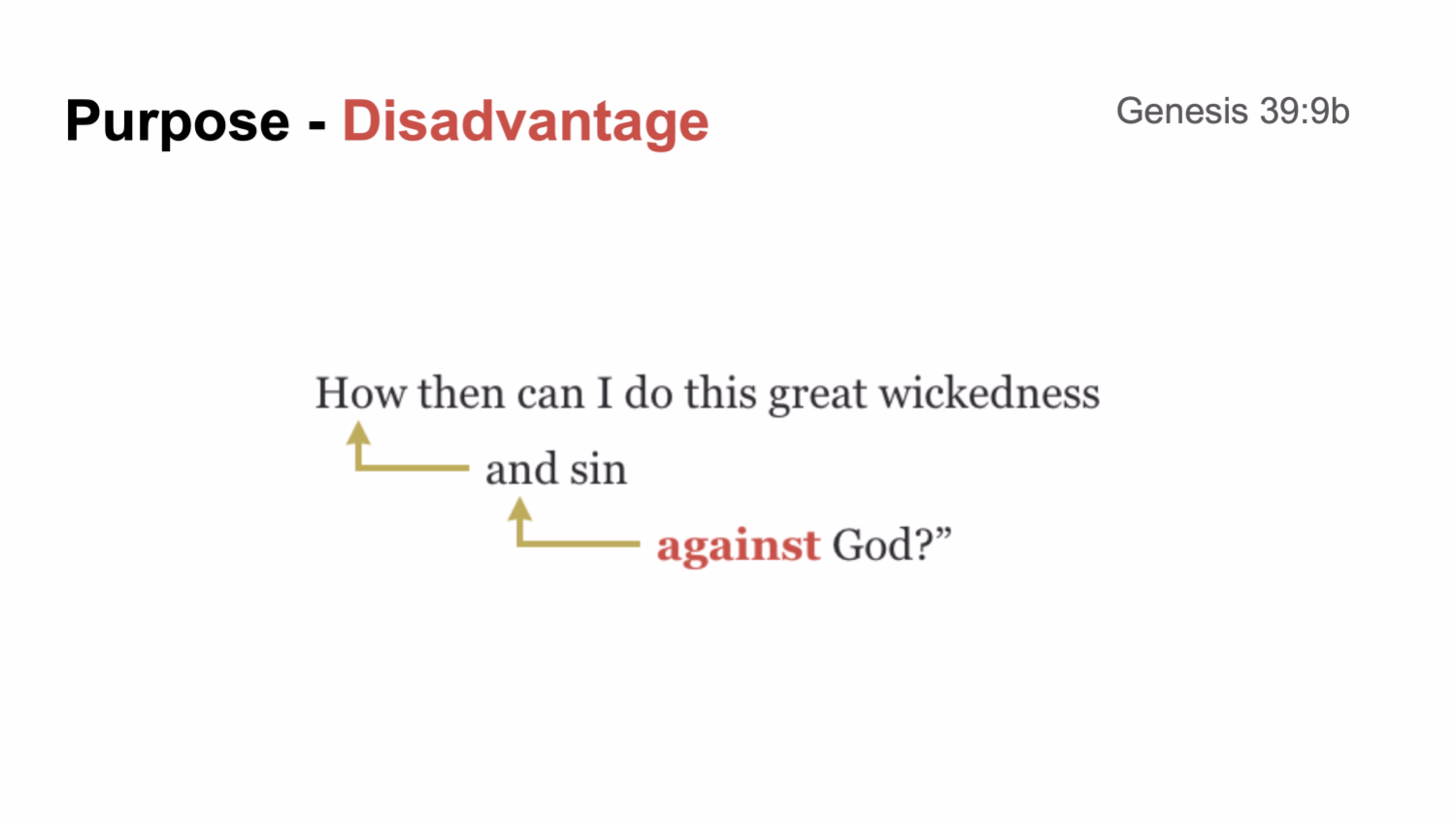
Joseph knew that committing adultery with Potiphar’s wife would have been to despise God himself.
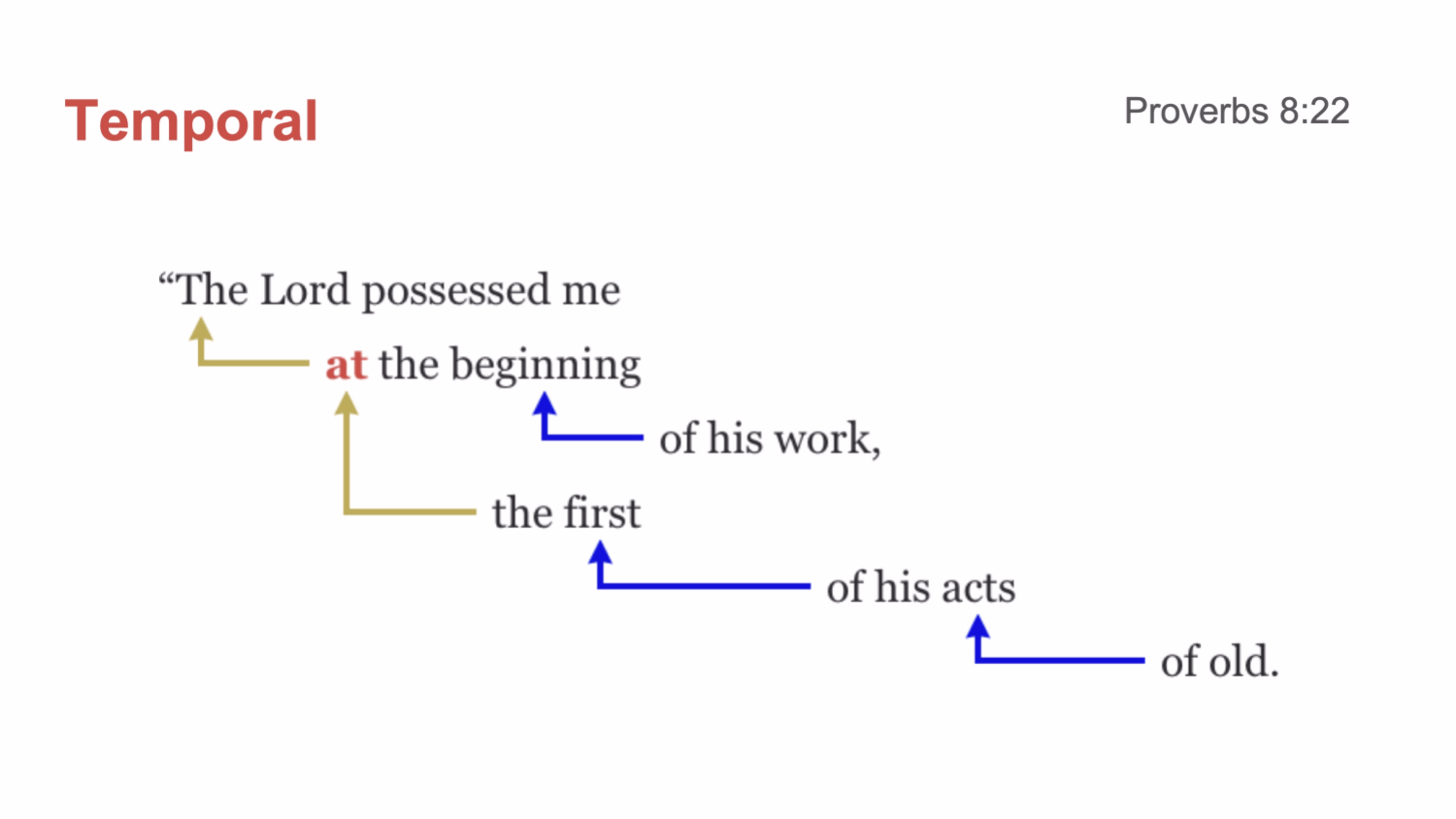
When did the Lord possess wisdom? From the beginning of his work of creation.
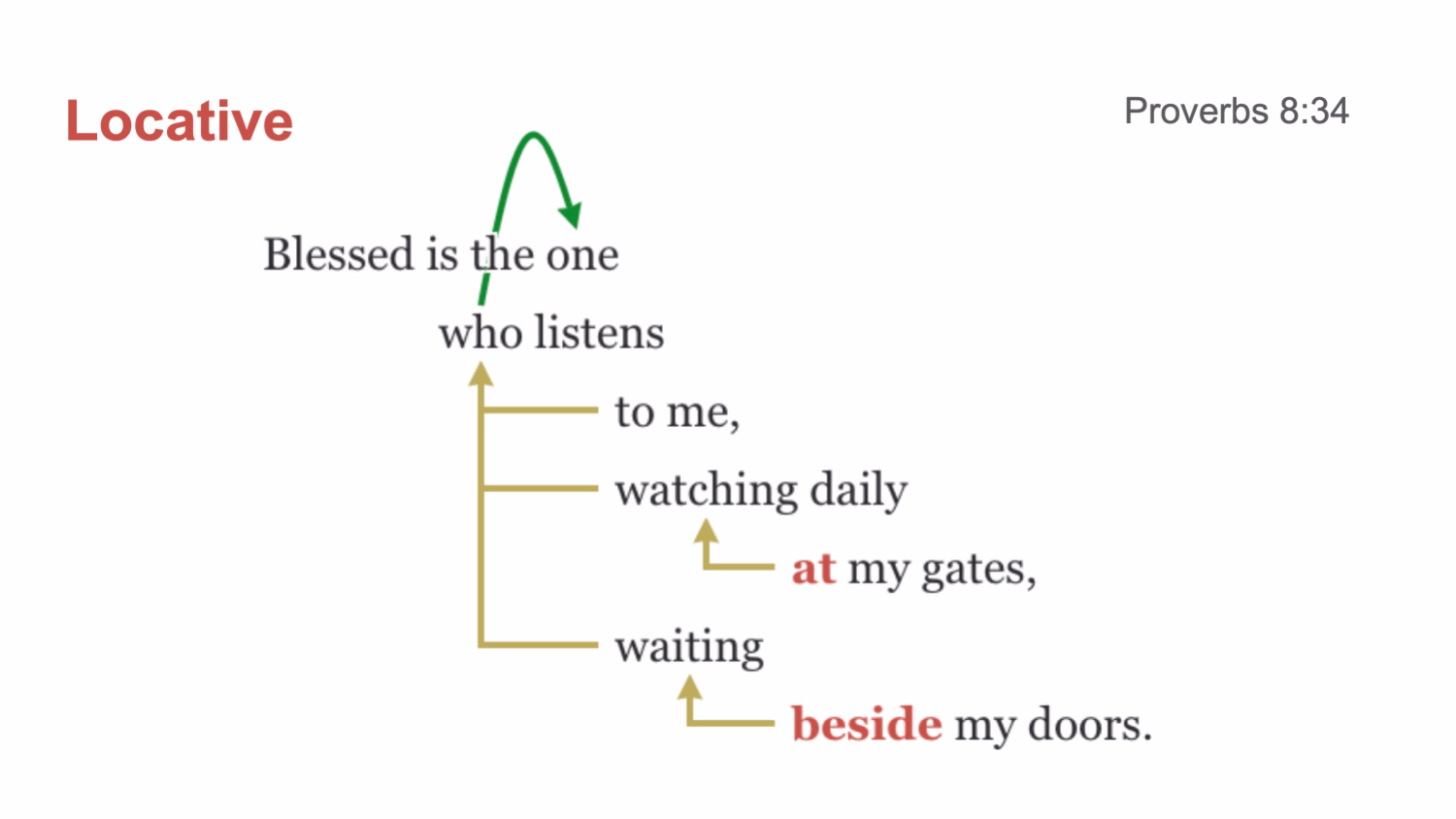
Here the location of watching for wisdom is right by its gates.
Notice that the preposition “at” can be used in a Temporal or a Locative relationship. The key is the object of the preposition: is it a word of time, like “beginning” in Proverbs 8:22 (see the previous example), or a word of location, like “gates” just 12 verses later?
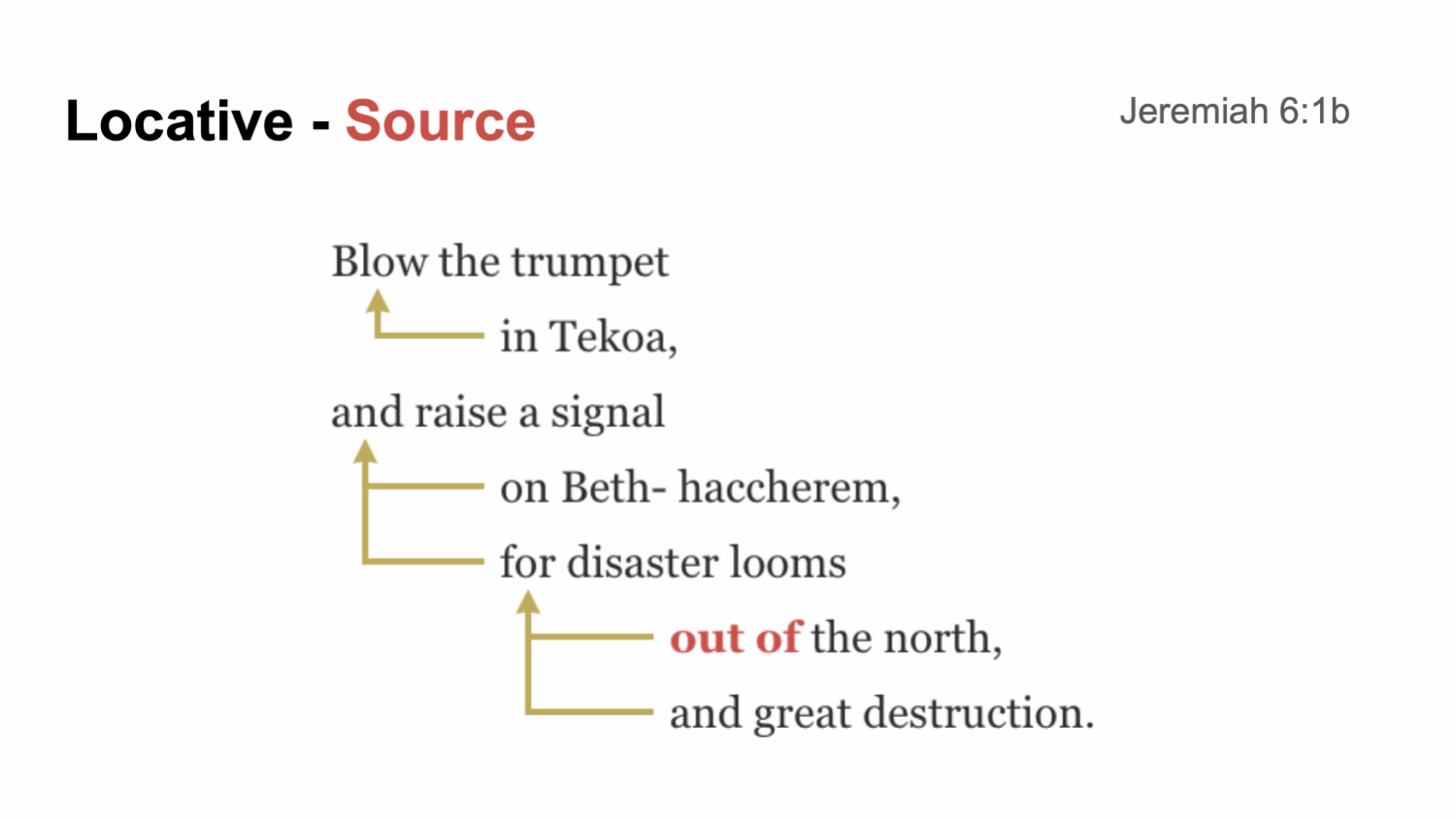
Disaster was looming up toward Benjamin from the north of the land.
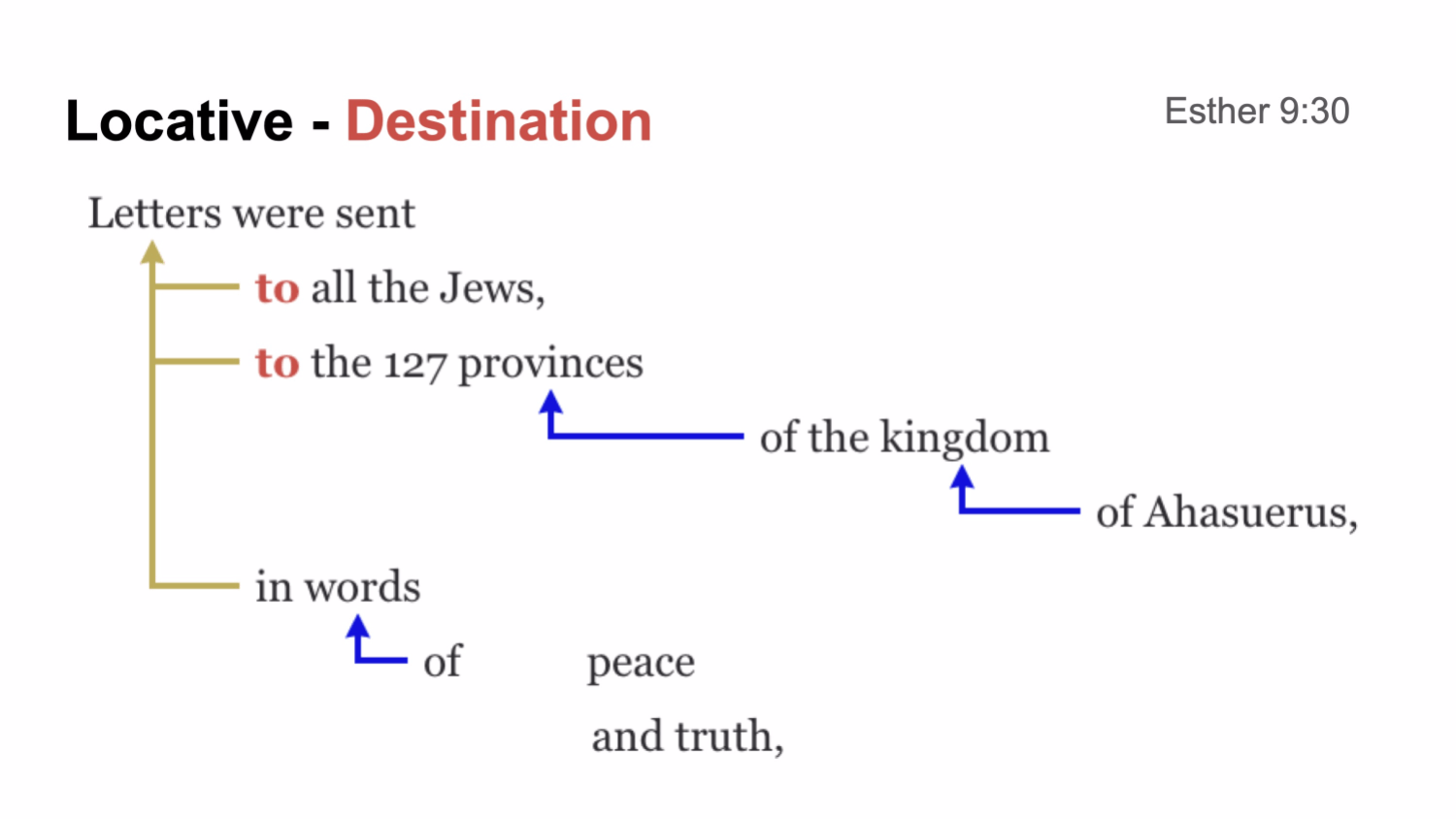
The destination of the letters was the Jewish inhabitants, and so the letters were sent to the 127 provinces of Persia where Jews lived.
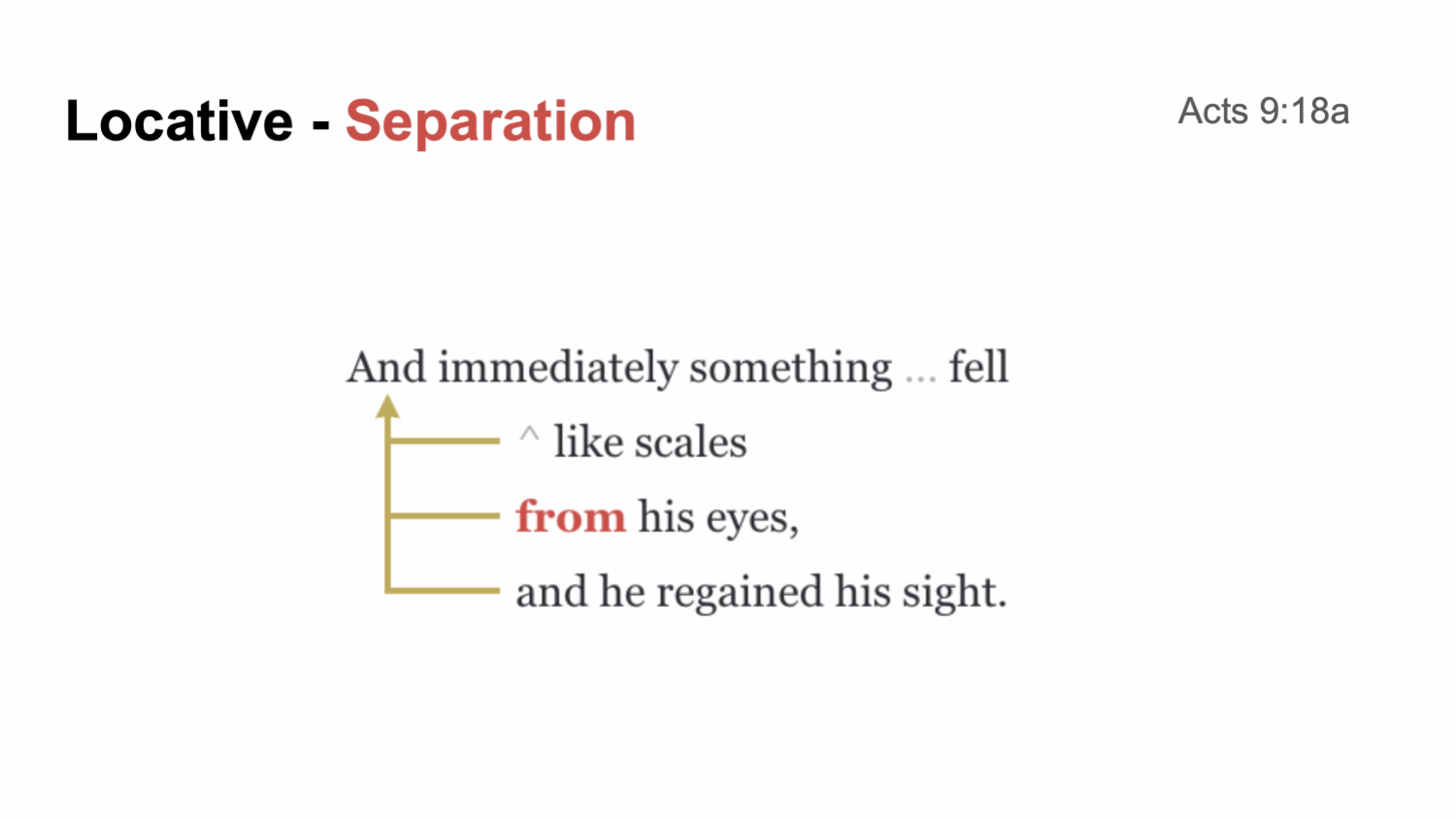
The scales that had blinded Saul’s eyes were separated from them and fell to the ground.
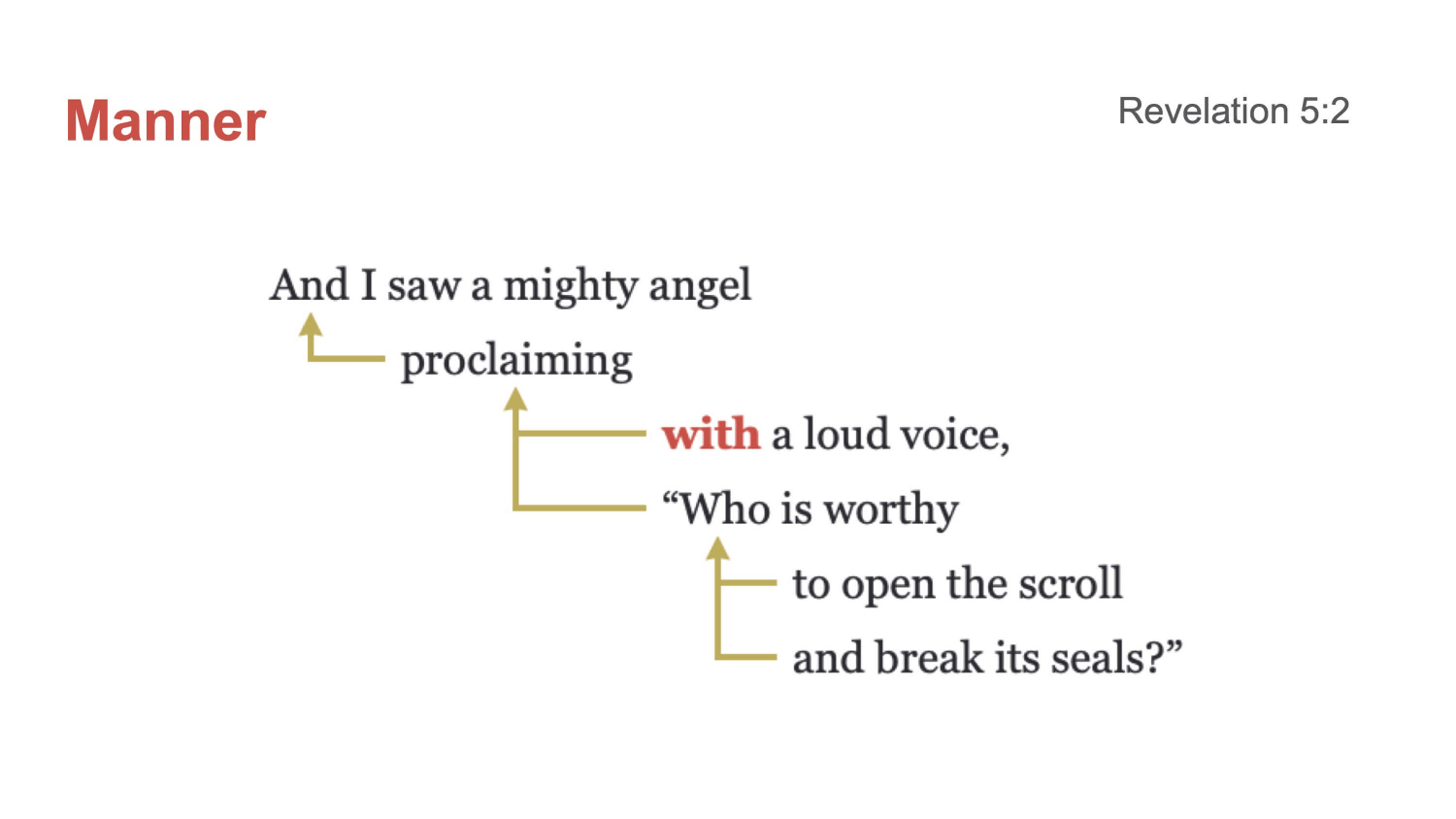
The manner of the angel’s proclamation was loud.
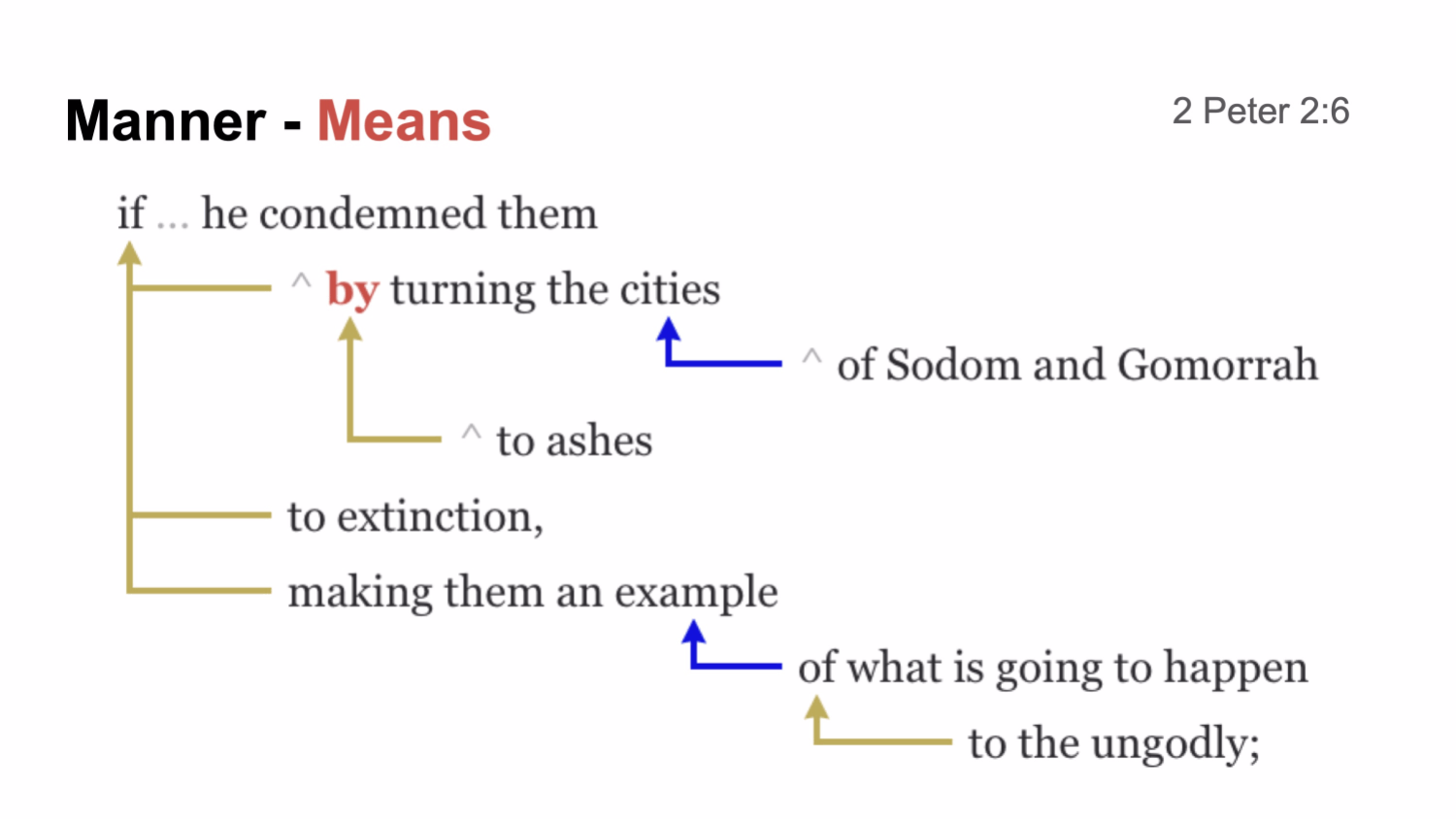
How did God condemn Sodom and Gomorrah? By the means of sulfur and fire (Gen 19:24-25).
I should clarify something about prepositional phrases here. Some of you who are very observant may have noticed that although I said earlier that a prepositional phrase has no verb, the prepositional phrase in the above example contains something that looks like a verb: the word “turning”! The explanation for this is that although a prepositional phrase will not contain a finite verb, it may contain a verbal—that is, a participle or a gerund—as above.
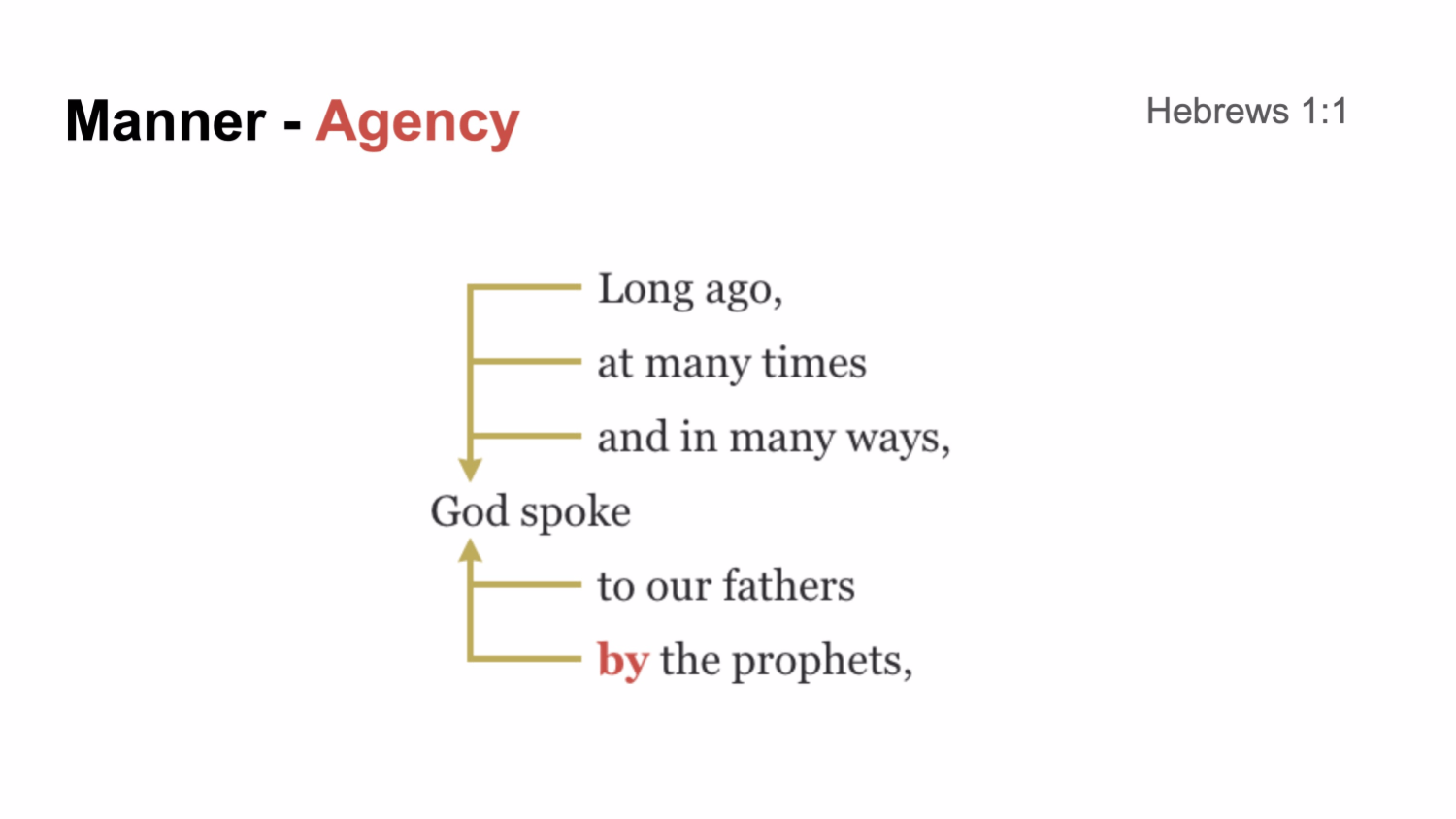
God is the person who spoke in the Old Testament Scriptures, using the agency of the prophets.
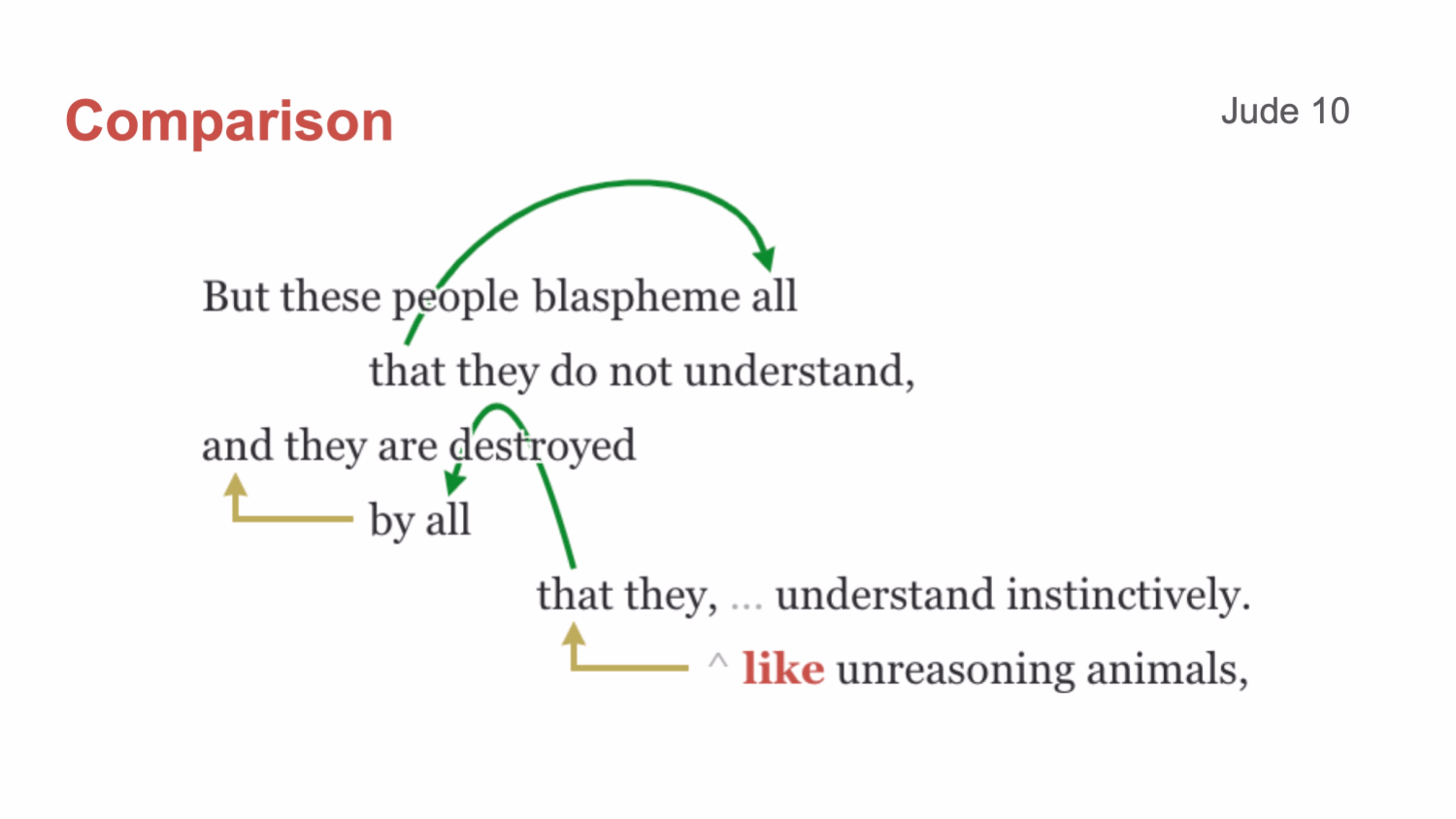
The sin that will destroy the false teachers is their unreasoning behavior; in this, they act just like animals who have no capacity for reason, but follow their instincts.
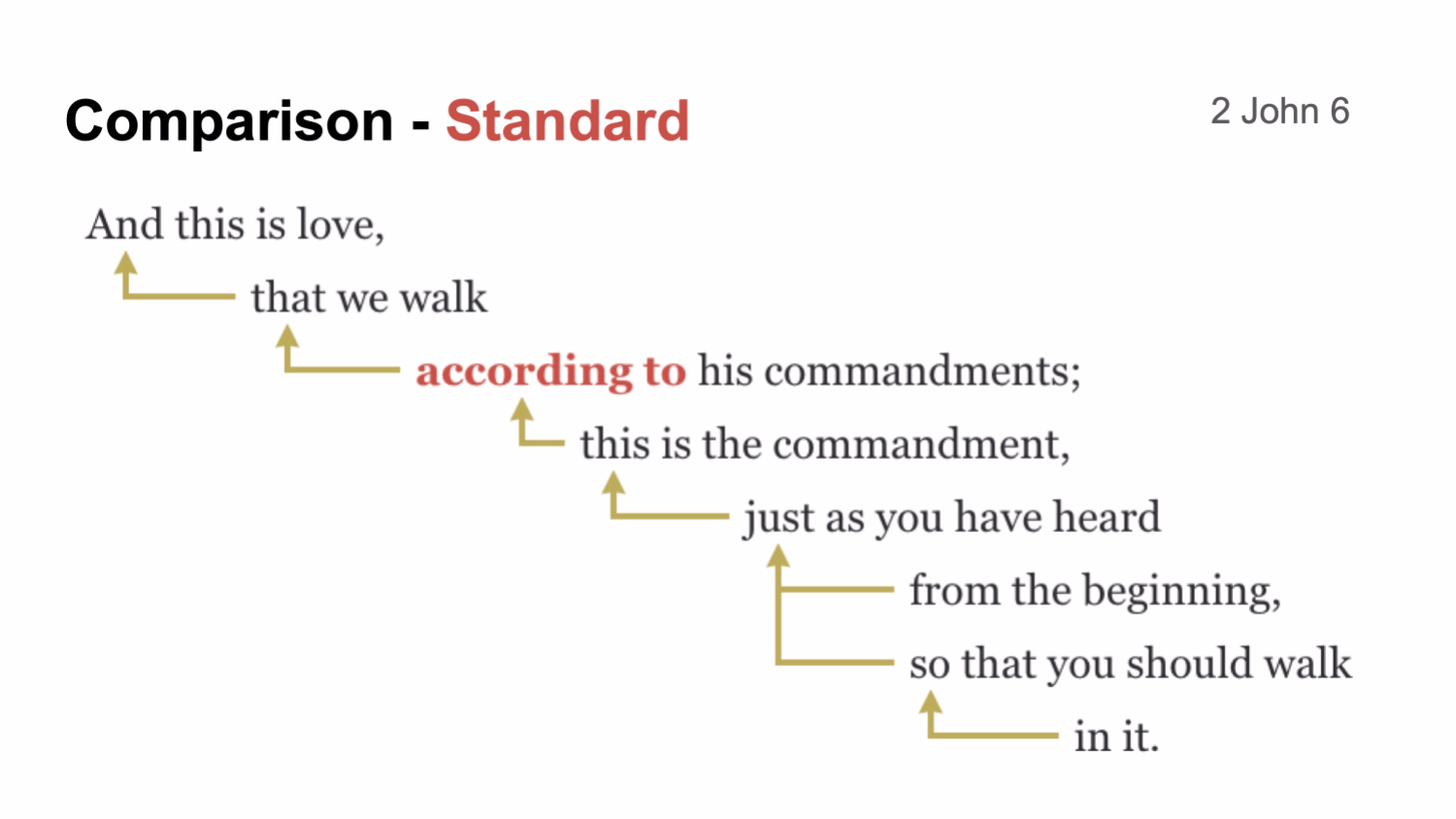
The standard or point of reference we should use to make sure we are walking correctly is God’s commandments.
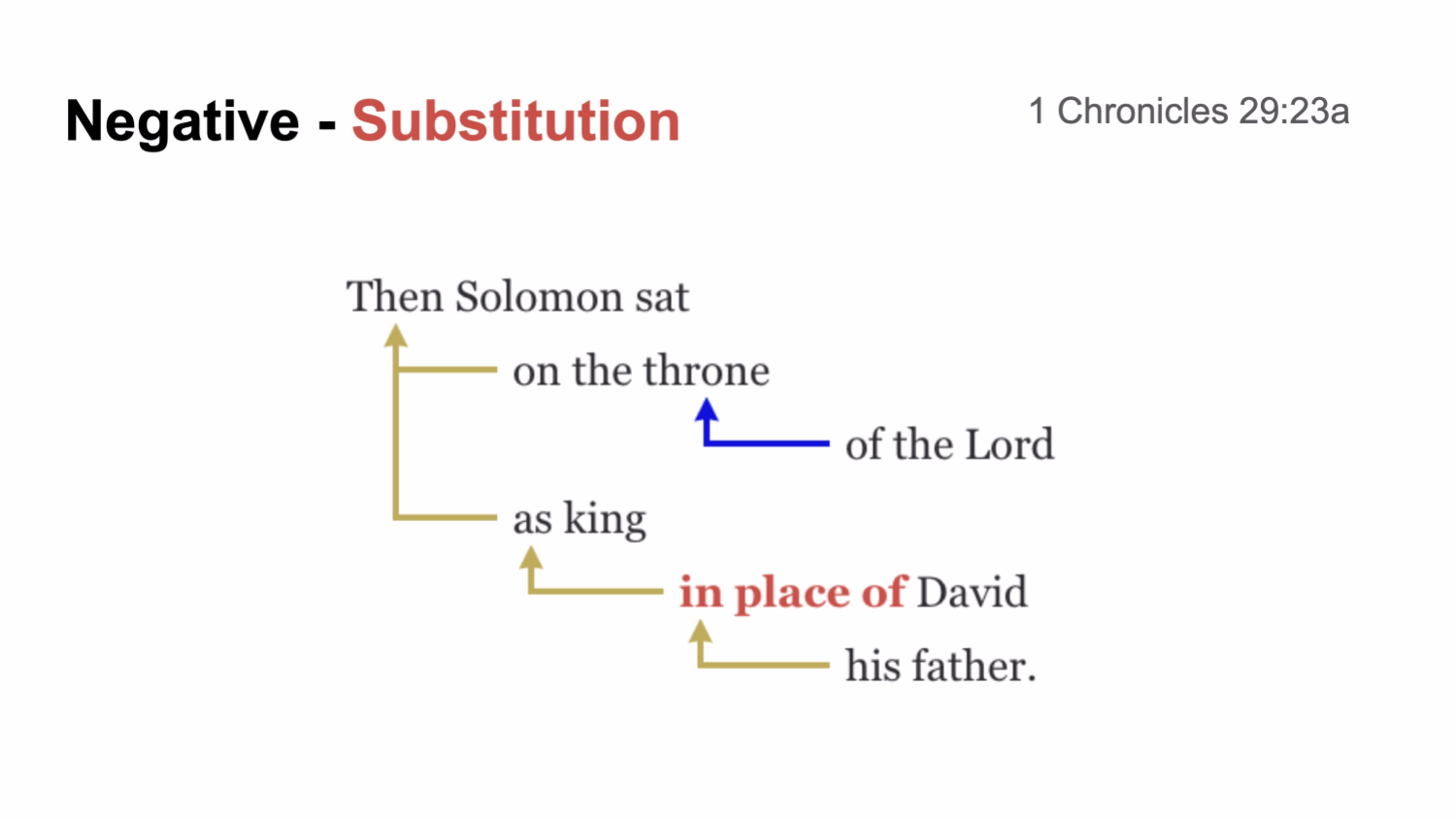
Solomon became king instead of David.
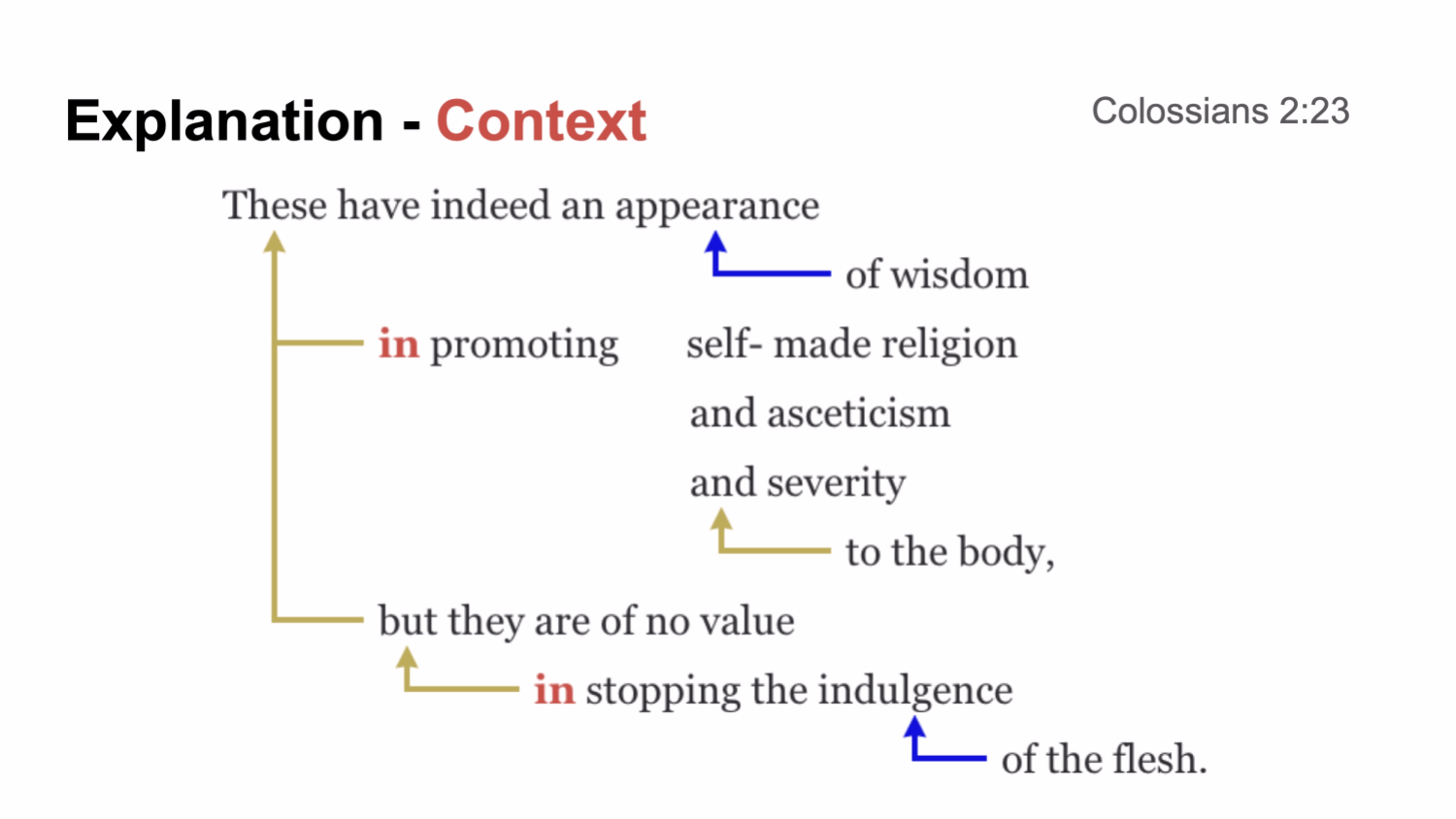
There are two examples of this relationship in the above verse. The appearance of wisdom of the Colossian heretics was in the sphere of self-made religion, and their teachings had no value in the sphere of curbing fleshly indulgence.
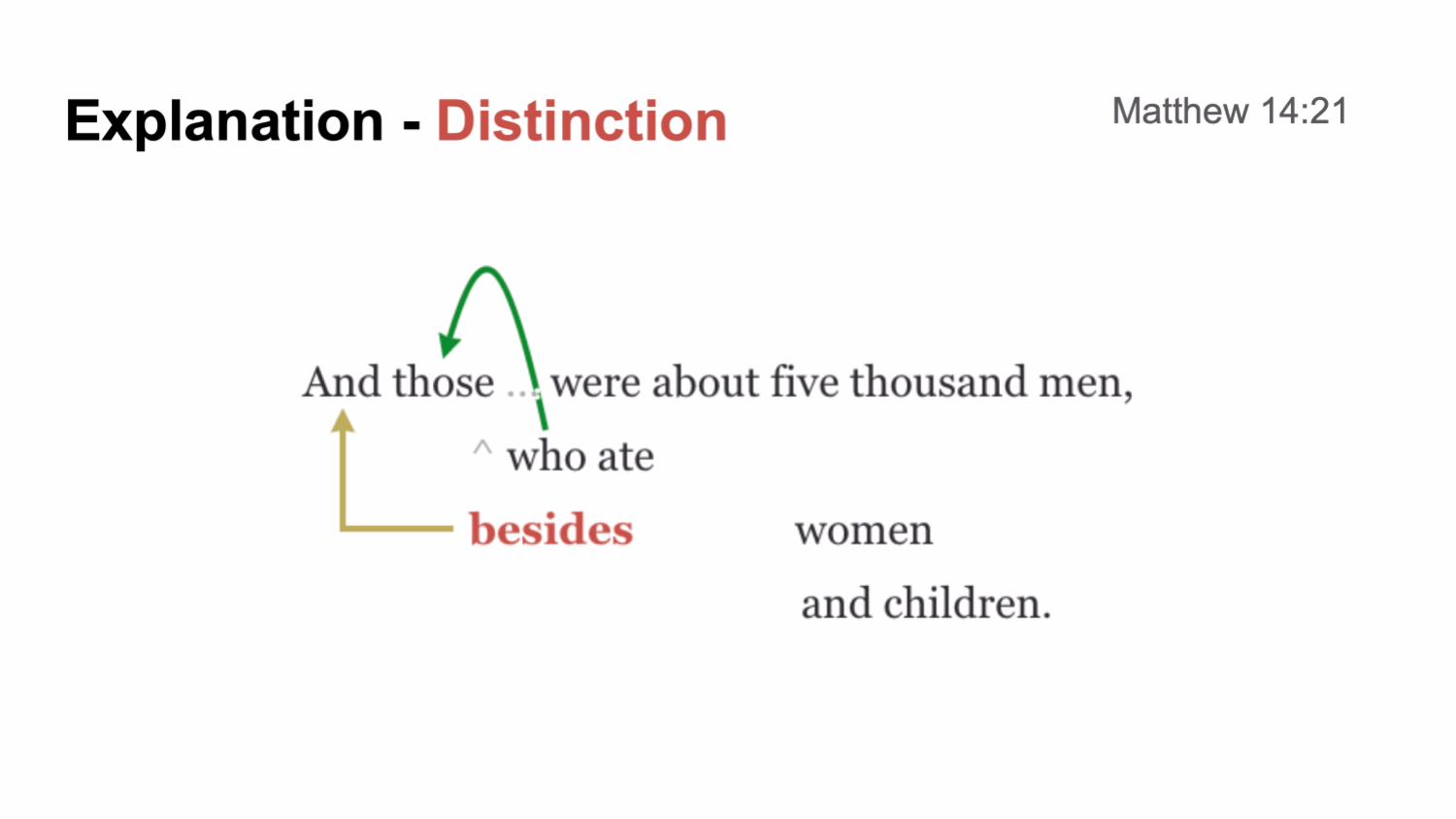
The subordinate phrase distinguishes the five thousand men from women and children, making clear that “men” in this case means “males,” not “people.”
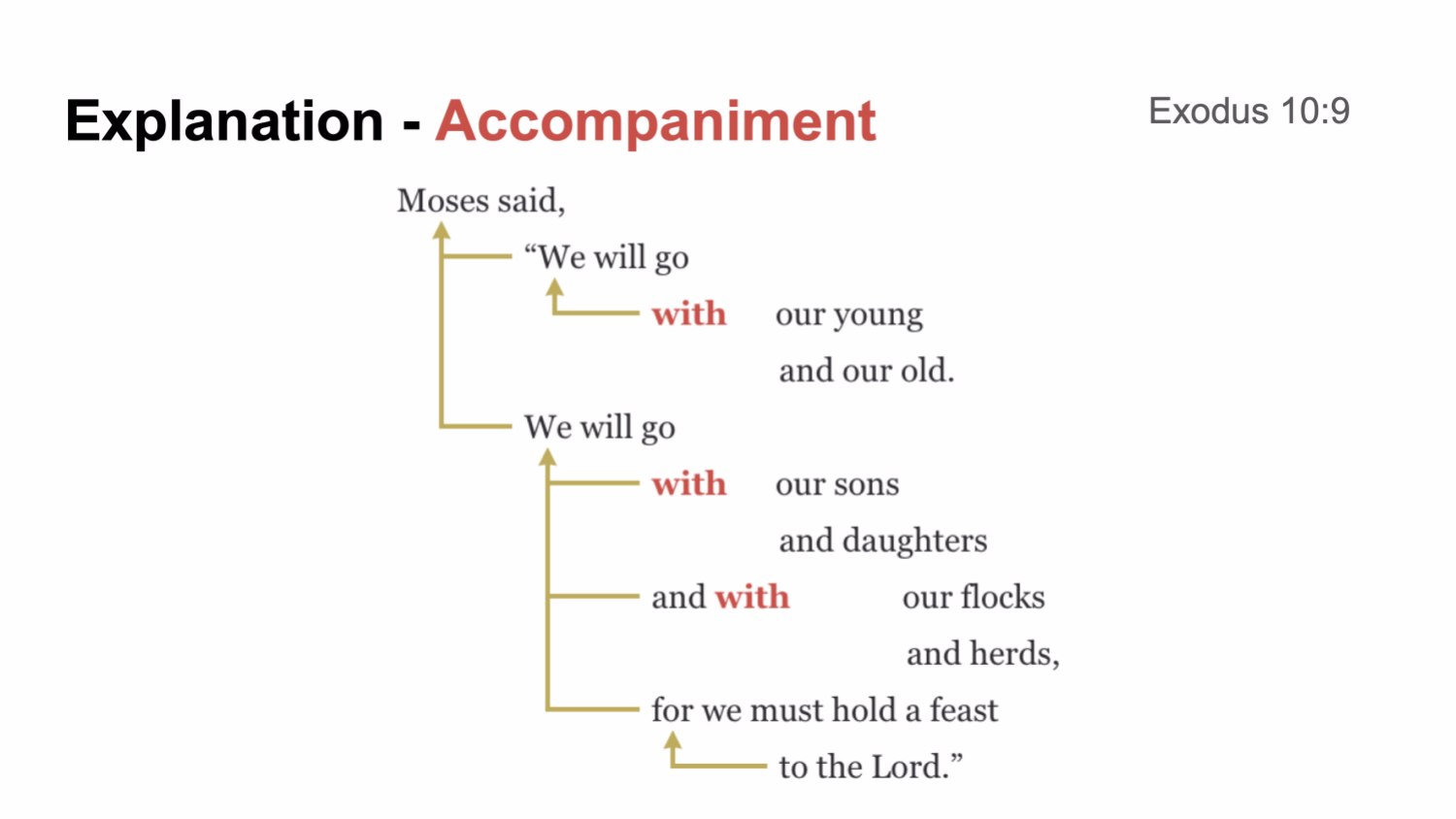
Moses insisted that, when the Israelite men went on a journey to worship the Lord, they would be accompanied by their young and old relatives, their sons and daughters, and their flocks and herds.
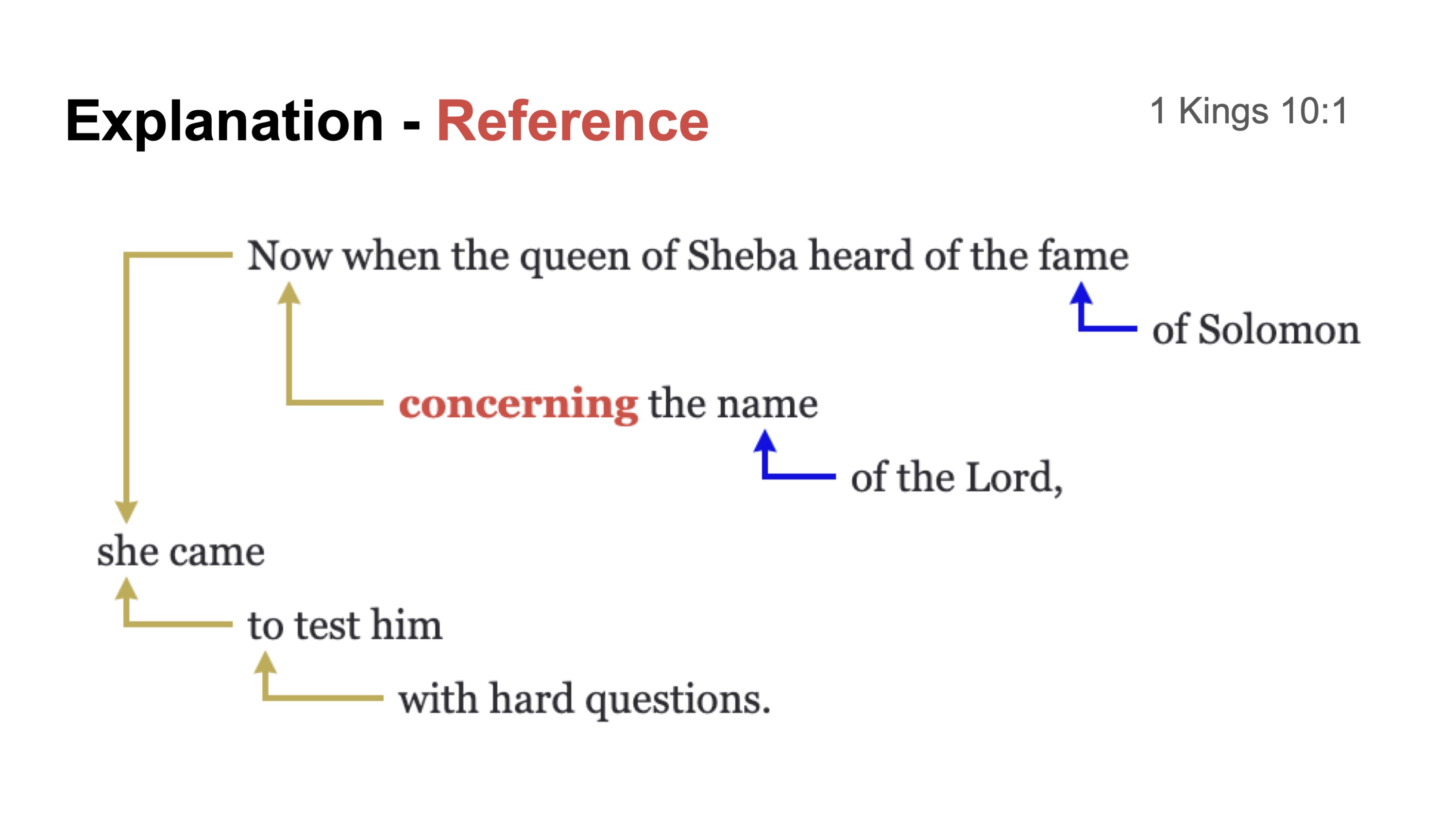
Solomon's fame was specifically in connection with the Lord's name.